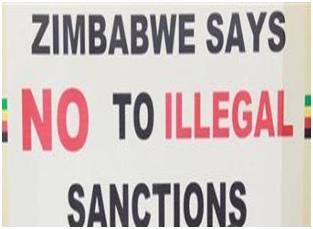Through the effects of OFAC Zimbabwe is finding it difficult to find investors. The United States has since made an undaunted decision through OFAC’s Executive Order 13391 which prohibits U.S. persons, wherever located, or anyone in the United States from engaging in any transactions with any person, entity or organization in Zimbabwe found to, according to them: 1) be undermining democratic institutions and processes in Zimbabwe; 2) have materially assisted, sponsored, or provided financial, material, or technological support to these entities; 3) be or have been an immediate family member of a sanctions target; or 4) be owned, controlled or acting on behalf of a sanctions target.
OFAC also prohibits transactions that include, but are not limited to, exports (direct and indirect), imports (direct and indirect), trade brokering, financing and facilitation, as well as most financial transactions. A number of banks operating in Zimbabwe like CBZ and Standard Chartered to date have had their transactions with the international community restricted and fined huge sums for defying the order.
USA continues to throw spanners in Zimbabwe’s economic development agenda. This year United States of America issued a Withhold Release Order (WRO) for artisanal rough cut diamonds from Zimbabwe alleging they are produced through forced labour. Such a move clearly shows how the US continues to close all means for Zimbabwe to have a viable economy. Zimbabwe has been on the US sanctions list for close to 20 years which has resulted in the continuous deterioration to the country’s economy through US quest to stop any means of Zimbabwe economic revival.
Employment opportunities continue to dwindle as a result of sanctions which have brought the country’s economy on its knees. A number of companies have been closed and thousands of jobs have been lost due to the continued bite on the country’s economy. More than 50 companies since 2017 have been closed as read in the documented details from the Master of High Court’s office that about 55 companies were allowed to liquidate from November 2017 to December 2018 and more continue to be faced with challenges that might force them to liquidate in 2019.
African leaders continue to be appalled by the continued sanctions on Zimbabwe. This year, the President of South Africa (SA), Cyril Ramaphosa, during the 49th edition of the World Economic Forum (WEF) in Davos, Switzerland raised concern over sanctions affecting Zimbabwe. The South African president said Zimbabwe’s economy was being subdued to harsh economic sanctions largely affecting its economic growth.
In his words, President Ramaphosa expressed the extent to which the country had suffered for two decades enduring sanctions. The election of a New Government had given hope to SADC and AU that the West would eventually warm up, open up and uplift sanctions on the country, instead, the West has remained adamant.
The voice of Africans must be heard by the West. South Africa, which is Zimbabwe’s neighbour and trading partner, remains vocal on calling for the United States of America to lift the sanctions on Zimbabwe. According to The Herald, in 2018 President Ramaphosa called on the European Union (EU) to lift sanctions on Zimbabwe since the country had taken a magnificent step and needed much support on its course to vast economic reforms. The removal of sanctions will ensure that Zimbabwe’s New Government is accorded with an enabling environment to develop its economic sectors so that the country can be at par with the rest of the SADC region. Its economic failure is greatly affecting the development of SADC region as a whole.
If sanctions are uplifted, it has the potential of ending the economic challenges the country has been facing since 1999. The illegal sanctions have not only affected the ordinary Zimbabweans and the business community but have also ripple effects that have been felt in the SADC region in its entirety.
Hence, the fight against sanctions is no longer a fight for Zimbabwe alone. Sanctions hinder the development of SADC through an impact on trade as well as the rest of Africa. As African nations, we have been colonized and robbed by the same countries which imposed sanctions on our poor economies. The West is continuing to bully African States and has surely exposed itself on how it can prevent development of a nation like Zimbabwe. Zimbabwe is still developing and needs assistance to speed up its economic development through upliftment of sanctions.
Regardless of the sanctions drive by the West, Zimbabwe has an opportunity of fuelling its economy through regularizing its informal sector which circulates billions of dollars daily. Small-to-Medium Enterprises (SMEs) are a medium for fuelling economic growth, when regulated, they have a potential to boost the economy as in the case of Malaysia which turned around its economy through small business enterprises.
To assist in this endeavour, ZIMRA has put in place various measures which are aimed at promoting SMEs. These include a specific office that was set up to deal with queries and enquiries pertaining to the sector, formalised business structures and provision of operating platforms. Further to that, ZIMRA should soon introduce self-service using automated payment and return management systems to alleviate SME’s in to the economy.
It becomes saddening that at a time Zimbabweans should work together to turn around their economic fortunes, the country is overwhelmed by juvenile politicking being exacerbated by MDC on its quest for power which has made it largely involved in the sanctions matrix. MDC must be embarrassed for supporting and continuously inviting these immoral sanctions which are a violation of human rights.
MDC is currently mobilising people in the West to counter the anti-sanctions campaign to be held on the 25th of October 2019. The intent remains to facilitate an unjustified reason for the West to continue to keep Zimbabwe under the sanctions grip.




